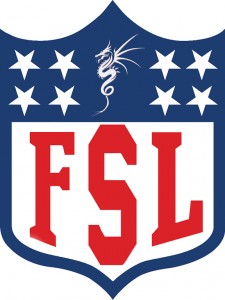 Molly Wood is on the show along with Justin Robert Young and we’ll talk about what we expect to happen at Apple’s WWDC and what we WISH would happen. Also thoughts on Ballmer buying the Clippers, and a little update on TrueCrypt. And Len Peralta is here to draw it all! You can’t miss this one.
Molly Wood is on the show along with Justin Robert Young and we’ll talk about what we expect to happen at Apple’s WWDC and what we WISH would happen. Also thoughts on Ballmer buying the Clippers, and a little update on TrueCrypt. And Len Peralta is here to draw it all! You can’t miss this one.
MP3
Please SUBSCRIBE HERE.
A special thanks to all our Patreon supporters–without you, none of this would be possible.
If you enjoy the show, please consider supporting the show here at the low, low cost of a nickel a day on Patreon. Thank you!
Big thanks to Dan Lueders for the music and Martin Bell for the opening theme!
Big thanks to Mustafa A. from thepolarcat.com for the logo!
Thanks to our mods, Kylde, TomGehrke and scottierowland on the subreddit
Show Notes
Today’s guests: Molly Wood, columnist for The New York Times, Justin Robert Young, co-host of Night Attack and Weird Things podcasts, & Len Peralta of the arts!
Headlines:
Engadget reports more details on the unannounced Samsung virtual reality headset. Engadget’s sources now say the headset is a collaboration between Samsung and Oculus VR. Oculus handles the software giving Samsung early access to the mobile dev kit while Samsung does the hardware and gives Oculus early access to next-gen OLED screens.
As ordered by the EU, Google has implemented a solution for removing URLs from its index for Europeans that wish to be forgotten, as is their right. Just attach a copy of a valid photo ID, name, email, country whose law applies, and a list of every URL to be removed. Then explain why the link is “inadequate, irrelevant or no longer relevant, excessive in relation to the purpose,” and you’re soon forgotten!
Ars Technica reports Google will close its Fort Worth, TX factory which makes Moto X smartphones. Mark Randall, Motorola’s senior vice president for supply chain and operations, told the Wall Street Journal that poor sales of the Moto X prevented the company from achieving economies of scale and also blamed labor and shipping costs. Motorola is in the process of being sold to Lenovo by Google. That deal should close later this year.
Steve Gibson continues to follow the TrueCrypt story at GRC.com and has a page collecting all the developments as they happen. Among the significant events, the Open Crypto Audit Project will proceed with phase II of its security audit of the whole-disk encryption software, despite the developers abandoning the project. Phase II will analyze the entire way encryption is implemented in TrueCrypt. Also Steven Barnhart posted on Twitter that he received emails from a TrueCrypt developer indicating there is no longer interest from the developers, there was not government pressure, and feels a fork of the code would be harmful. Those emails have been submitted to Ars Technica for vetting.
The Next Web reports WeChat has added an option to the Chinese version of its app, allowing verified official accounts to set up e-commerce stores in the app. WeChat’s Chinese app, is expected to rake in $1.1 billion in revenue this year on in-game purchases, flash sales and other transactions it operates itself. WeChat owner TenCent would like to create a place where users can talk, play games and shop without leaving the app.
It looks like your writing an 2 billion dollar offer sheet to buy an NBA franchise, would you like help? Former Microsoft CEO Steve Ballmer mercifully ended a nine month hiatus as a public figure, resurfacing to buy the Los Angeles Clippers from Shelly Sterling, wife of embattled racist Donald Sterling. The sale is pending a Tuesday vote by NBA owners, who have plenty of reason to “get on their feet” with excitement, the 2 billion dollar tag represents the most an NBA team has ever sold for. Despite previous attempts to move a franchise to Seattle, Ballmer has indicated he plans to keep Blake Griffin setting blue screens of death for Chris Paul in LA. Hat tip to Kylde who submitted this one on the subreddit.
News From You
metalfreak posted today’s top vote getter on the subreddit. US House Representative Bob Latta of Ohio introduced a bill late Wednesday that would block the FCC from reclassifying broadband as a common carrier service under Title II of the Telecommunications Act. The FCC does not prefer to take that route but is investigating it as an option as part of its notice for proposed rulemaking regarding the open Internet. Block Communications, Buckeye Cablevision, the National Telecommunicatiosn Cooperative, American Cable Association, AT&T, the NCTA and Time Warner Cable are 7 of Latta’s top 5 donors in the current campaign finance cycle.
KAPT_Kipper submitted the BuzzFeed reports that Amazon will add a streaming music service to its Amazon Prime membership sometime this summer in either June or July. The service would restrict its contents to music more than six months old. Because BuzzFeed can’t help its listicle ways, it cited Five Music Industry Sources who told it about the forthcoming service.
And Shaun_McGee posted the Ars Technica story about Elon Musk unveiling the Dragon V2 space capsule last night at SpaceX Headquarters in Hawthorne, California. The capsule is designed to carry up to seven crew members to the International Space Station. The capsule is reusable and supposedly able to land “with the precision of a helicopter.” Musk hopes to be ready to transport crew by 2016. NASA has a deadline of 2017.
Plug of the day: The Tinker’s Packs is an online store that sells books and other cool stuff for the charity Worldbuilders. Worldbuilders started in 2008 on Pat’s blog to raise money for Heifer International. Heifer doesn’t just hand out bags of rice, Heifer gives a family a goat and teaches them how to take care of it. Then that family has a continual source of milk for their children. They can sell the extra milk to make money. When the goat has babies, they give those babies to other members of their community, sharing the gift.
Discussion Section Links: What to Expect at WWDC on Monday
http://www.engadget.com/2014/05/30/what-to-expect-at-wwdc-2014/?ncid=rss_truncated
http://arstechnica.com/apple/2014/05/what-to-expect-from-apples-wwdc-keynote-on-monday/
http://techcrunch.com/2014/05/30/what-to-expect-at-apples-wwdc-2014/?ncid=rss
http://www.wired.com/2014/05/apple-wwdc-preview/
http://techcrunch.com/2014/05/30/apple-streams-wwdc-platform-state-of-the-union-design-awards-to-developers-for-the-first-time/?ncid=rss
Pick of the day: Tom picks Booking.com
Monday’s Guest: Iyaz Akhtar, of CNET.com and The Guys From Queens Network.
 In 1883 – Thomas Edison and Stephen D. Field built the world’s first elevated electric railway. It was a narrow-gauge 3-foot-wide track in the gallery around the edge of the main exhibition building of the Chicago Railway Exhibition. It ran nine miles per hour.
In 1883 – Thomas Edison and Stephen D. Field built the world’s first elevated electric railway. It was a narrow-gauge 3-foot-wide track in the gallery around the edge of the main exhibition building of the Chicago Railway Exhibition. It ran nine miles per hour.


